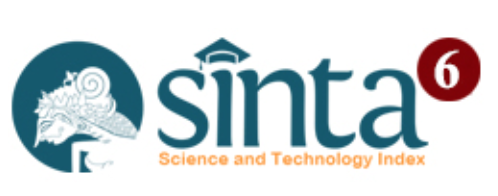PEMBERDAYAAN IBU-IBU PKK DALAM PENGOLAHAN SAMPAH UPAKARA YADNYA MENJADI PUPUK KOMPOS GUNA MENINGKATKAN PEREKONOMIAN MASYARAKAT DESA ADAT MENGWI BADUNG
Abstract
The purpose of this paper is to find out the regulations related to ceremonial waste in Bali by understanding the form of government responsibility for the management of ceremonial waste to be able to protect the environment based on Tri Hita Karana carried out by the community, which is stated in "Law No. 18 of 2008 concerning Waste Management” in article 20 paragraph (1) and “Regulation of the State Minister of the Environment Number 13 of 2012 concerning Guidelines for the Implementation of Reduce, Reuse, and Recycle through Waste Banks”, which are basically regulated in Article 7 paragraph (4), and there are still many other waste management regulations. This waste processing is carried out by PKK women in an MSME (Micro, Small and Medium Enterprises) container that is around 30 to 45 years old and has different educational backgrounds. Empowerment to improve the standard of living for underprivileged mothers. This is done both in groups. So the mothers in the Mengwi Traditional Village. The government is very enthusiastic to provide motivational support in processing ceremonial waste into compost in the form of financial, the Empowerment of PKK women in the Mengwi Traditional village aims to find out the Empowerment of PKK women in processing ceremonial waste into compost and the sustainability of its management, the results of from the processing of this waste can be sold to consumers. The implementation method used is by way of mentoring orientation, training and monitoring the group of PKK women who participate in the processing of ritual waste in the Mengwi Badung Traditional Village. The planned activities that will be carried out include: Providing exposure or explanation about knowledge on how to process ceremonial waste into compost. In addition, it also provides assistance for marketing when it is processed into compost to consumers. The next activity was about training for the PKK women's group about processing ceremonial waste and conducting monitoring activities on how the waste processing activities could continue.
References
Adam, Felik, 2006,“Pengentasan kemiskinan Melalui pemberdayaan masyarakat”. Http/goggel/kpk.
Assuari, Sofyan, 1987. Manajemen Pemasaran. Rajawali Pers, Jakarta.
Crescent,2004. Menuju masyarakat mandir.Gramedia, Jakarta
Ekoprioyono, adi, 2005. The Spirit of Plurasim (menggali nilai- nilai kehidupan, mencapai kearifan). Pt. Gramedia, jakarta. Kantor Wilayah Departemen Agama Hindu Propinsi bali, 2007. Panca Yadnya.
Miles, Matthew B. & A. Michael Huberman. 1994. Interactive Model of Data Analysis
Pudja, G.MA. 1983, Acara Agama Hindu II. Paramita ,Surabaya.
Putra, Ny. I Gst A. Mas. 2001. Upakara Yadnya. Pemda TK. I Bali , Denpasar. Denpasar
-----------------, 2000. Arti dan Fungsi Sarana Persembahyangan, Paramita, Surabaya.
Pudja, G. 1981. Sarasamuscaya. Jakarta: Mayasari
Teja, I Made. 2005. Usaha Kredit Menengah ( UMKM ). Rajawali
Wiana, 2005. Bentuk Upakara yadnya. Penebit Paramita :Surabaya





